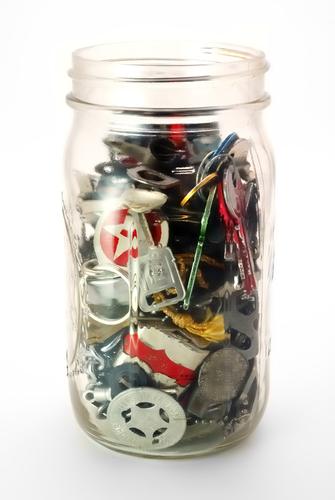The start of a new year marks the perfect time to give your home and office a clutter makeover, purging it of the excess papers, files, knick knacks and other “stuff” that not only takes up space in your physical environment, but also in your mind.
Clutter is an often-unrecognized source of stress that prompts feelings of anxiety, frustration, distraction and even guilt. A messy home or workspace can make it feel like it’s impossible to relax, and it greatly interferes with creativity and productivity.
In fact, as CNN reported, it’s estimated that some workers waste six weeks a year searching for lost documents, while the average American spends nearly one hour a day looking for items they know they own but can’t find!
Messy, Cluttered Homes Linked to More Stress in Women
This probably goes without saying, but in a study of 32 middle-class homes conducted by a team of archaeologists, anthropologists and other scientists, mothers who described their homes as “messy” or “cluttered” also had higher levels of stress hormones by evening. The study, which forms the basis of the book Life at Home in the Twenty-First Century, also revealed some other quite shocking insights into the average American home:
- 75 percent of homes’ garages were so cluttered with boxes, storage bins and other items (300 to 650 items in all) that there was no room left to store a car. This is absolutely shocking to me.
- A strong correlation was found between the number of items attached to a family’s refrigerator and the number of objects per square foot in the rest of the house
So You’re Ready to De-Clutter, What Now?
First, realize that de-cluttering is an ongoing process, not one that happens overnight. That being said, you can make some serious progress in even an hour if you know where to start. This includes:
- Get your “supplies” ready. You'll need file folders, labels and markers, a paper shredder, a recycling bin, a trash bin and a bin to put items you plan to donate or sell.
- Pick a location to start. De-cluttering should happen in stages, so start with your office or your kitchen, and then within that “region” focus on your desktop or a particular cabinet, moving forward only when that space has been organized.
- Tackle papers head on. Paper organization is often cited as the highest priority among those looking to get organized, but many simply end up stacking and re-stacking the same papers. Instead, sort them into “like” piles and have file folders ready to store them in by category.
- Every item must have a “home.” This should be your de-cluttering mantra, because if you don’t have a place to put an item, it will end up back in the clutter pile. Before you create a permanent home for any object, paper or file, make sure it’s something that is truly useful, important, valuable or otherwise worthy of keeping.
- Remember, clutter breeds clutter. If you put a box of items you don’t know what to do with in a closet, soon it will be joined by another box, and another. Break this cycle by tackling the box head on, not leaving it to be de-cluttered “later.” This also means you should de-clutter on a daily basis and always put items back where they belong.
- Put storage solutions where you need them. Do you need a mail sorter for your kitchen counter? A bin to catch your keys, dog leash and cell phone when you walk in the door? A toy box for your family room? Analyze the way you live and choose your storage solutions accordingly.







